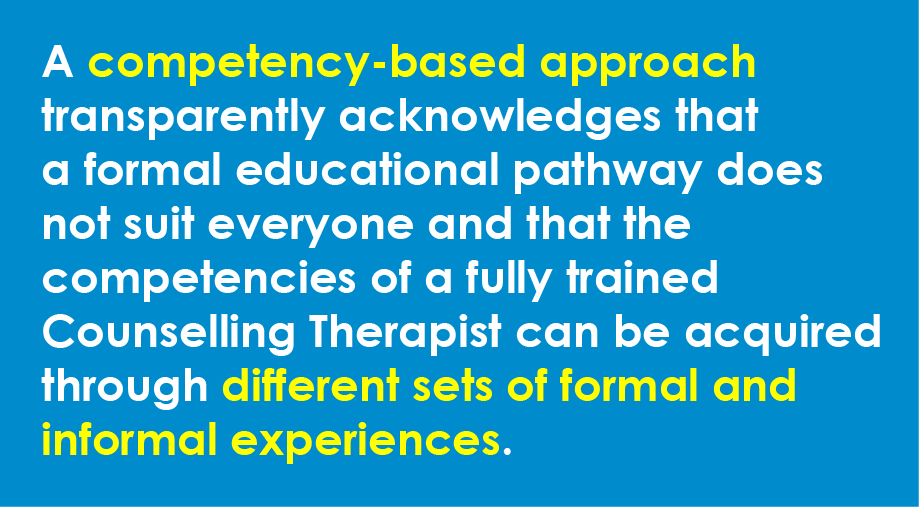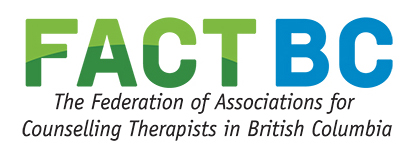The route to professional standing in Counselling Therapy originated through the provision of training in counselling provided in Faculties and Departments such as Psychology, Education, Social Work and Theology. Because of the formal administrative structures of institutions offering these disciplines, the training often occurred in the context of a post-baccalaureate, graduate degree program.

Times have changed and, along with other professions, Counselling Therapy has moved past traditional reliance on a generic credential such as a Master’s degree towards the employment of models of professional training which focus on developing and assessing the actual professional competency of practitioners. Rather than establishing that a candidate has spent 30+ hours sitting in a required course on diversity, a competency-based approach asks a candidate to demonstrate their ability by effectively interviewing clients from diverse backgrounds.
A competency-based approach transparently acknowledges that a formal educational pathway does not suit everyone and that the competencies of a fully-trained Counselling Therapist can be acquired through different sets of formal and informal experiences. Accordingly, the competency based model removes some of the barriers which the traditional approach sets in the way of those for whom formal education structures and the Eurocentric world view which these embody are not a good fit. In doing this, it provides inclusive room for competent non-traditional professionals and actively welcomes diversity of background and experience.
In making this evolutionary shift, FACTBC’s commitment to the profession of Counselling Therapy takes a clear step in the direction of reconciliation and responds to Call to Action #22 in the Truth and Reconciliation Commission: Calls to Action (2015).
Addendum April 3, 2023
Comments on “Removing Euro-centric Barriers”
We are so pleased that people are reading the FACTBC monthly newsletter and offering their feedback and comments on the articles that are being written.
The most recent Op Ed “Removing Euro-centric Barriers” generated a good deal of conversation and we thought we would take the opportunity to note some of the themes that emerged in the feedback.
We received a variety of comments — some challenging the author’s position and some applauding it.
Several commentators felt that the article disparaged the utility of a graduate education: the traditional gateway to professional practice in Counselling Therapy. The author’s intent was never to imply that graduate studies do not have their place but instead to underline the importance of promoting competency-based regulation in the profession. In the author’s view, while graduate education provides a solid foundation and is a good predictor of subsequent competency, it is not the only route by which competent practitioners can or should be nurtured.
Some other commentators appreciated FACTBC’s commitment to public safety and agreed that focusing on practitioner competency, whether based in academic study or through other experiences, was the appropriate direction for the future of the profession.
FACTBC regrets the discomfort that some readers experienced and thanks everyone who sent in their thoughts and comments. We appreciate the time you took to take part in this discussion.

I appreciate the efforts here in beginning to stretch the barriers around what is considered (‘approved’) continuing education to be more inclusive for all.
There are amazing programs, workshops and other offerings out there that may not fall into the boxed parameters of CE or PD however serve practitioners and providers in the most impactful ways for one’s own evolution/growth and in turn for the benefit of clients.
I hope to see more of this around the emphasis and value that is often imposed on credentials and education.
Thank you for your feedback and support.